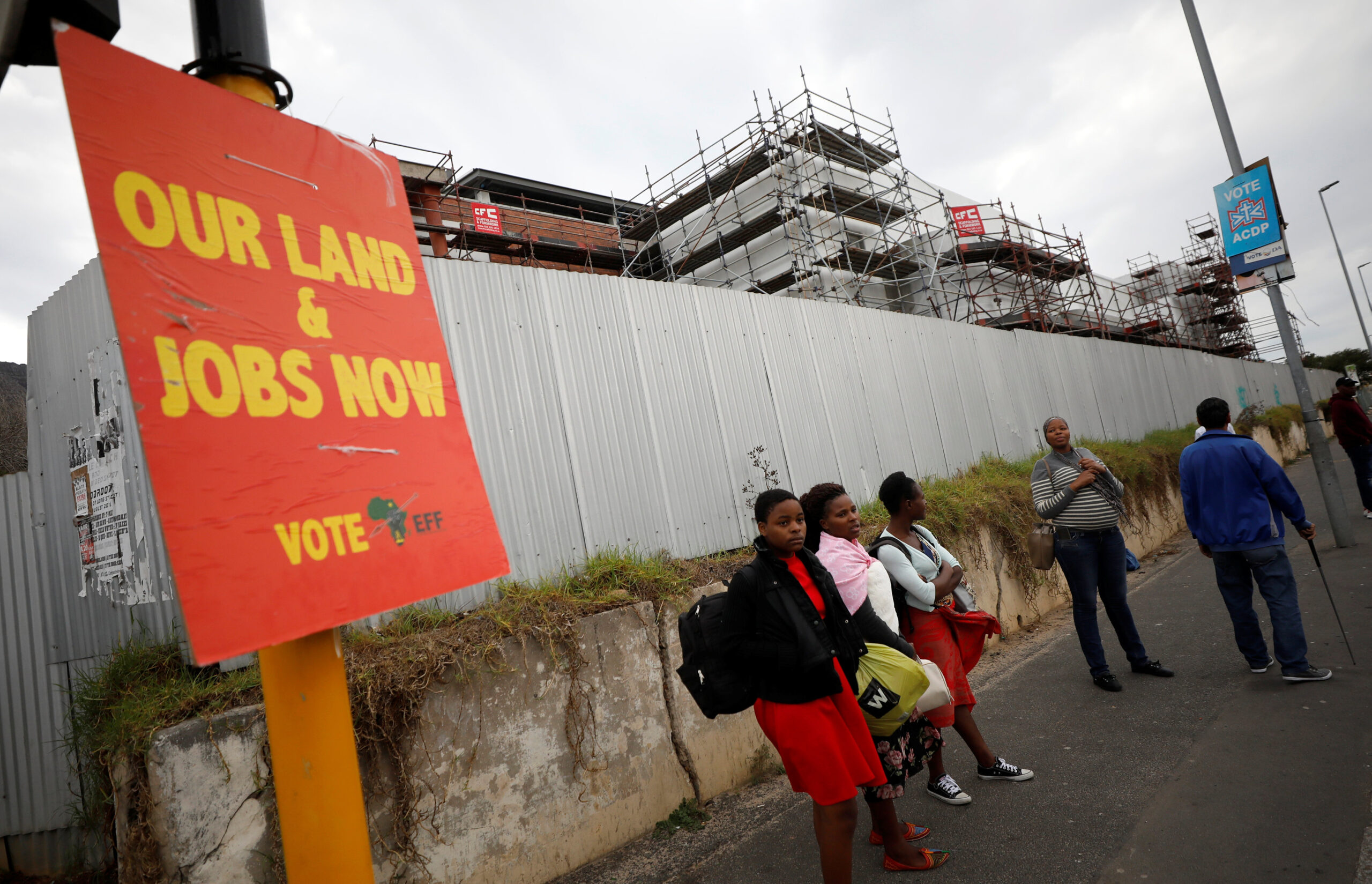
South Africa: What’s in store for the upcoming elections?

It has been twenty-five years since Nelson Mandela – the icon of South Africa’s liberation movement – cast his ballot in the country’s first democratic elections. It was a new beginning for South Africa, a time of hope and burgeoning potential.
Today, in the impoverished Johannesburg township of Alexandra, that hope is long gone. Many of those who patiently waited to cast their vote in 1994 – electing Mandela’s African National Congress (ANC) party – now see no reason to vote in the May 8th elections.
The lost voters
Patricia Tele has lived in Alexandra Township her whole life. She raised children and grandchildren there, living out the violent days of apartheid, the ecstatic times of a new democracy, and the disappointments of the following 25 years.
“I was so excited for the first time when I got to vote in 1994 because we had hope, all of us as South Africans, that at least we will have a black government that will listen to our needs, our crisis. But it never turned out like that,” Tele says outside her Alexandra home, which she shares with ten others.
“They failed for 25 years, nothing has happened. The promises that Mandela has made never happened, it’s just lies.”
The issue of housing is at the forefront of the consciousness of Alexandra residents, the majority of whom have been waiting for decades for homes promised to them by the government. Few have seen these promises materialise and most are left to live in overcrowded, deteriorating conditions where shacks sit piled on top of one another and sewage water runs openly in the streets.
The challenges of daily life are further compounded by a lack of basic services, high crime rates, and huge levels of unemployment. It is a community heavy with pain, waiting in limbo for government promises that never deliver.
“I am mad-sad,” says Patricia’s son, Moeteksi Tele. “Because each and every time I think that I could be somebody in this world, I become sad because there is a policy or somebody is trying the block the way for me to get there.”
Like ten million other South Africans – including a large portion of youth – Moeteksi is not voting. Instead, he works alongside his friend and fellow Alexandra resident Benjamin Chisari with the Alexandra Consent Community Group.
Disillusioned by the current state of South African politics and a sense of unfulfilled promises, the two men started the organisation to address challenges on a grassroots level. Residents meet every Friday to voice their concerns and discuss avenues to implement change by representing themselves and fighting for their own causes.
The Consent Community Group is driven by the belief that South Africa’s politicians and their parties do not represent the interests of Alexandra residents and consequently the group has been vocal in its decision to boycott the upcoming general elections.
“If they do not fix our health system, fix our police department, fix social development, fix the department of human settlements, and other areas which are departments in government, we are not voting because we have reached a stage where we want them to give what they promised,” Chisari reiterates. “Let’s look at May 8th as a public holiday.”
Shifting loyalties
The outcome of South Africa’s 2019 elections hinges a lot on this sense of disillusionment among many of Alexandra residents, suggesting a change in the country’s previous voting patterns.
The ANC has been in power since democracy, first under Mandela’s leadership, then through the years of Thabo Mbeki and Jacob Zuma, and now with incumbent President Cyril Ramaphosa at the helm. As the political poster child of South Africa’s liberation movement, the party has had a large and loyal support base since 1994, having won each election by a notable majority.
However, high levels of inequality and unemployment, alongside widespread corruption scandals involving senior government officials, has caused the electorate to grow increasingly impatient with the ANC governing party.
It is an impatience seen among Alexandra residents and across the country, that has been translated in the polls in the 2014 and 2016 elections alongside predictions for the 2019 elections.
As the sixth election since democracy approaches, pre-election polls show an apparent drop in support for the ANC, flat to negative support for the centre-right opposition party Democratic Alliance, and a sharp gain for the radical left Economic Freedom Fighters.
“I spent some time in townships trying to understand where the support is going,” notes Hajra Omarjee, a South African journalist and political editor of local radio station Power FM. “Having spoken to the youth, they do not consider the ANC their political home, so are more inclined to vote EFF. In term of people aged 30 through 60, they felt they wanted an alternative government and trusted the DA with the vote.”
This marks a notable change in South Africa politics, leading to the 2019 elections being coined as the “most hotly contested” since the country’s democracy. “For the first time, the governing ANC is no longer guaranteed an overwhelming majority as we saw in the recent elections,” Omarjee observes. “The question now is if opposition parties will secure enough votes to lay the basis for the transition of power in future elections.”
Within this context, Wednesday’s elections could mark a critical moment in South African history. While an ANC victory is accepted as guaranteed, it remains to be seen how those opting out of the vote will shape the electoral outcome and the power of South Africa’s opposition.






